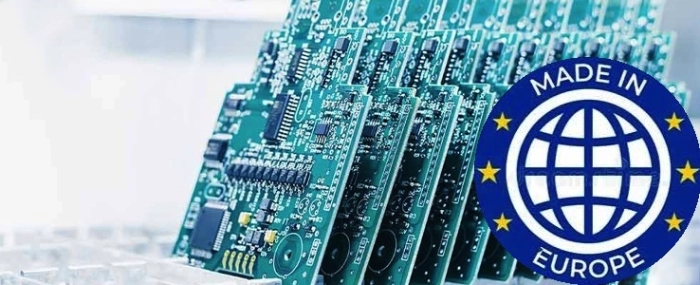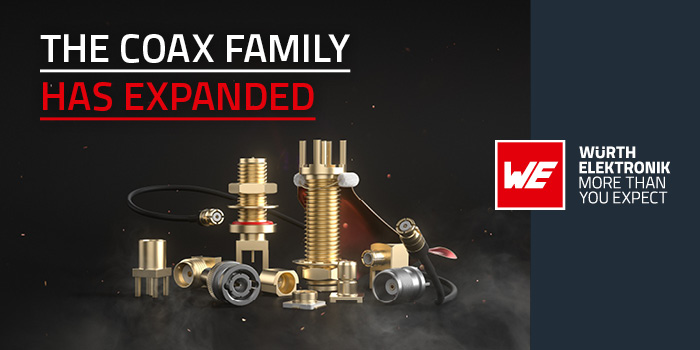
Retain public funds within the EU economy
In his previous guest article, Dirk Stans, Managing Partner at Eurocircuits, outlined three key actions needed to strengthen Europe’s electronics industry. Now, in this follow-up, he delves deeper into the first priority: ensuring that public funds remain within the EU economy
Author: Dirk Stans – Managing Partner at Eurocircuits
I propose formalising the "EU Origin First" principle into a binding directive, ensuring that public funds consistently circulate within the EU economy. For years, the European Commission has led by example, prioritising products and services with at least 60% EU-added value when allocating public resources. This approach helps ensure that EU funds, particularly those partially derived from public subsidies, remain within our economy. However, to maximise its effectiveness, this principle must transition from a recommendation to a legally binding directive, requiring all member states to integrate it into their national legislation.
Moreover, this must happen now, before deploying the EUR 43 billion allocated to the Chips Act and the EUR 800 billion foreseen in the Draghi Report. Establishing a clear framework will provide the certainty our industry needs to invest confidently in Europe’s technological future.
Goals and rationale
The core objective of this directive is to ensure that EU tax money and public funds remain within the EU, directly reinforcing economic growth and strengthening European industries. Retaining these funds within the EU contributes significantly to the economy, particularly in critical sectors such as electronics. This is increasingly urgent as several key industries face external threats, often from foreign players receiving substantial state subsidies to undermine European businesses.
This challenge is particularly evident in the electronics sector. Today, many European electronics engineering graduates complete their studies without ever working with a European-made PCB, often unaware that such manufacturing even exists within the EU. The same applies to assembled PCBs, fostering a generation of professionals who wrongly assume that electronics production is an exclusively non-EU domain.
For the past two decades, this misconception has extended beyond individuals to SMEs, gradually eroding Europe’s internal market. This runs counter to the spirit of the Green Deal, as it is neither sustainable nor economically viable to manufacture PCBs outside the EU and ship them 10,000 km at dubious prices. These imports often fail to meet EU environmental, labour, and ethical standards.
By formalising the "EU Origin First" principle, we can put an end to this damaging trend while fostering fair competition for European manufacturers. This will also benefit educational institutions, enabling students to work with EU-made components, and strengthening awareness and confidence in Europe’s industrial capabilities. This, in turn, will support the development of a stronger internal market and equip the next generation of European professionals with direct exposure to high-quality European products.
At Evertiq Expo Berlin on June 5, 2025, Dirk Stans will take the stage to expand on the key themes explored in this article. Join us as he shares his expert insights on the industry’s pressing issues, potential solutions, and the steps needed to strengthen Europe’s position in the global electronics landscape.
A concrete example: The Intel chip factory in Germany
A striking case study is the planned Intel chip factory in Magdeburg, Germany, which is set to receive EUR 8 billion in subsidies. If the EU Origin First principle were already in force, European machine builders could compete for these investments. However, under current rules, nearly all funds — except for building infrastructure and a few ASML machines — will flow to Intel’s non-EU suppliers.
While this proposal may come too late for this specific project, its adoption would empower European companies to compete for similar opportunities in the future, strengthening confidence and encouraging further industrial investment.
Feasibility and Implementation
This proposal is straightforward and cost-effective, requiring only political will and determination.
Until recently, the political climate may not have been favourable to such an initiative. However, global events have reshaped perspectives, making this the right time to act. Some may argue that WTO agreements could pose barriers, but it is unrealistic to suggest that the WTO dictates how member states spend their own tax revenue. Moreover, this would imply that the EU Commission’s long-standing preference for EU-origin products has been incorrect, which is clearly not the case.
A binding directive would safeguard the future of the EU electronics industry while delivering broader benefits to other sectors. By ensuring that public funds stay within the EU, we provide essential support for European industries, enabling continued innovation and sustainable growth.
The availability of European alternatives for non-EU products, particularly in electronics, further justifies this measure. Our students and professionals deserve access to these resources, fostering stronger engagement with the European industry from the start of their careers.
Costs and Timeframe
This directive involves no direct financial costs. On the contrary, it has the potential to generate billions of euros in economic value for the EU. By implementing "EU Origin First", we foster local industries, promote sustainable production, and uphold ethical standards aligned with the Green Deal.
The timeframe for implementation is favourable, as existing tracking mechanisms for EU-origin products are already in place. The necessary legislative adjustments would be relatively simple.
Conclusion
Formalising the "EU Origin First" principle into a directive is a practical, cost-effective solution that supports Europe's long-term economic and environmental objectives.
It reinforces ethical standards, aligns with the Green Deal, and strengthens Europe’s internal market by directly supporting European industries and education.
The benefits are clear, and the implementation path is straightforward.
I firmly believe that this proposal, like many others, is a logical, necessary step that will deliver significant advantages for the EU and its citizens.
Take this for what it is worth, but in my view, the time for action has long since arrived. Endless discussions without decisions are no longer an option.
Dirk Stans, Managing Partner at Eurocircuits, drives the group's sales and marketing strategy. With over 20 years of active engagement in FHI, the technology federation for Dutch-speaking regions, he has served as both branch and federation chairman. Passionate about European technological manufacturing, particularly electronics production, Dirk remains committed to strengthening the industry.
At Evertiq Expo Berlin on June 5, 2025, Dirk Stans will take the stage to expand on the key themes explored in this article. Join us as he shares his expert insights on the industry’s pressing issues, potential solutions, and the steps needed to strengthen Europe’s position in the global electronics landscape.


